When it comes to the sport of hockey on an international stage, Canada and European countries (including Russia, for the sake of the example) are always the most lucrative markets. Then again, how could they not be? The vast majority of the league’s players come from these countries, millions of young kids from these countries aspire to be NHL players, and millions of fans follow the world’s top hockey league from an ocean away.
However, the NHL has started to set sights on building a fan base in China. The past few seasons have seen them stage preseason games in China, and this summer Washington Capitals superstar Alex Ovechkin was sent over as an NHL Ambassador. While not the NHL, the KHL also expanded into the Chinese market with their HC Kunlun Red Star during the 2016-17 season.
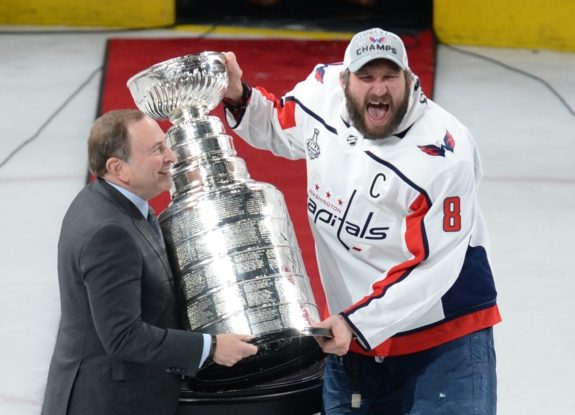
NBA basketball has been the most popular of the North American major professional sports in China, although some recent developments have opened the door for the NHL in a big way. With the timing the best it’s ever been for hockey, should the NHL pursue a full-blown Chinese campaign? And why is now the best time to do it?
Why the Timing Is Right for the NHL
First, we have to understand what is going on in China as a whole, as you’ve possibly heard bits and pieces on the news. Hong Kong is a “special administrative region” of China, meaning they’re legally part of China but are allowed a certain degree of control over themselves separate from the Chinese national government. In the past few months, a bill was introduced to extradite criminals in Hong Kong back to the Chinese mainland. That move was met with protests, leading to the bill being repealed, although the protests haven’t stopped. They’ve continued to grow and have now become a democratic movement.
While it’s an intense geopolitical issue, it didn’t have anything to do with sports, until a seemingly harmless tweet from Daryl Morey was sent out. Morey is the general manager of the Houston Rockets basketball team of the NBA. He tweeted in support of the Hong Kong protesters, striking immediate backlash across China, where the sport, and specifically his team, enjoy enormous popularity. Morey’s tweet got both support and condemnation in the United States, but fears of the ramifications from the Chinese market persists.
What That Might Be Good for the NHL
The reaction from China towards Houston’s NBA team was swift and adverse. One of the most striking reactions came from Tencent, a Chinese streaming platform:
Chinese streaming service Tencent — which drew 500 million NBA viewers last year — also has said it will not be showing Rockets games this year.
Read that again: 500 million viewers, which is more than the combined populations of the United States and Canada. That’s the number of people who have just had their access to Rockets games cut off. Although some reports say the Rockets are only banished from broadcast until a “reasonable explanation” comes from Morey, some say the ban is for the entire season.
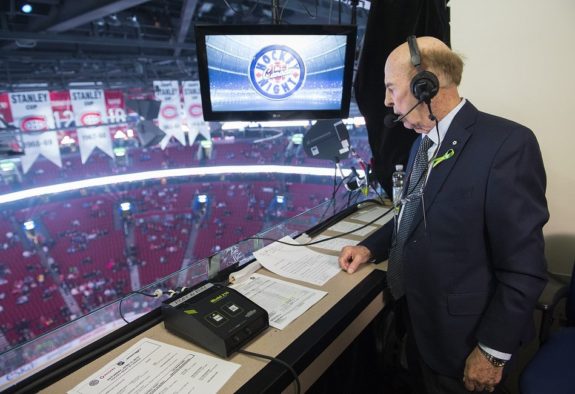
Of course with the escalating situation it might be hard to find a definitive answer, but let’s assume that 500 million Chinese consumers just got their sports coverage cut off. Who’s going to replace the Rockets? Maybe the Brooklyn Nets, whose owner Joseph Tsai is a renowned Chinese billionaire of Alibaba fame, might make a play to be the replacement. Or just maybe the NHL should make a push to fill those now-available airwaves.
The NHL and China
While Tencent might have spent $1.5 billion on their broadcast deal with the NBA, if they find themselves at the onset of a new season and searching for content, the NHL should be more than a willing partner. (from ‘Why the N.B.A. Apologized to China Over Daryl Morey’s Tweet About Hong Kong,’ The New York Times, 10/07/2019) NHL Commissioner Gary Bettman and company should expect to get far less than the NBA was paid, but in opening the market to 500 million sports fans, he would be wise to pursue such a large-scale opportunity. Compare that to the NHL’s current 10-year TV deal with NBS Sports in the United States and their deal with Rogers Communications in Canada.
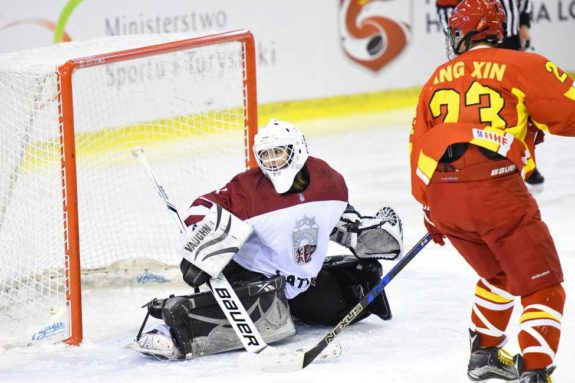
The NHL took major steps in China this past offseason, establishing an office in Beijing and hiring a full-time director of international strategy in Sandy Ma Yun, but hockey still has a lot of catching up to do with basketball. On the Chinese social media site Weibo, the NHL has just about 1 million followers; the NBA has almost 42 million. That doesn’t mean there isn’t a huge potential audience for NHL hockey in China, as 28 million viewers watched the NHL’s Chinese preseason contests last season (none were held for the 2019-20 season). That paints a favorable comparison to the 21 million Chinese basketball fans who watched Game 6 of last year’s NBA Finals. It is worth noting that the NHL’s preseason games aired on state-run television stations, while the NBA content was streamed on Tencent. For the sport as a whole, the Chinese Ice Hockey Association has already seen amazing growth in the sport’s participation.
Upcoming Olympics
As if the timing of the NBA’s apparent downfall in China couldn’t be more beneficial to the NHL, the 2022 Winter Olympics are right on the horizon and are to be held in Beijing. NHL players missed the chance to play in the last Winter Olympics, held in South Korea in 2018. Since then, it has remained a topic of continued negotiations if a new CBA comes to the table, although it ranks behind issues such as escrow earnings from players’ paychecks as the most pressing issue.
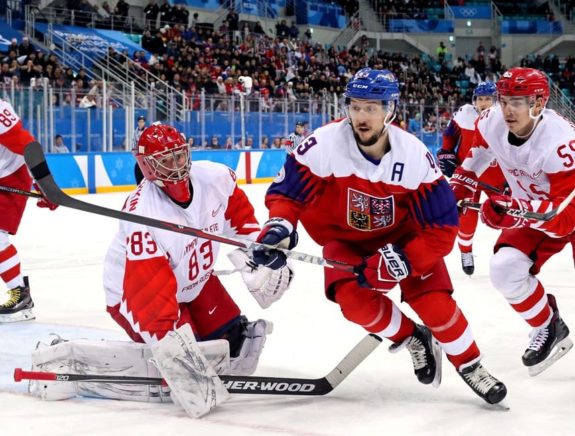
When asked what possibly prevents the sport from growing in the Chinese market, NHL Deputy Commissioner Bill Daly didn’t have to think long for an answer:
“It’s clearly infrastructure. I don’t think they have a traditional hockey infrastructure over there. I’m talking about ice, rinks, a hockey culture, tradition, history. So those are all things that have to be developed over time. You do that in a careful, slow and patient way. You do it through working at the grassroots level. One school or school system at a time, just exposing the game to more and more people.”
Luckily for the NHL, China has committed to building new winter sports facilities throughout the country to coincide with the Olympics. Every aspect of timing seems to be working in the NHL’s favor. However, there still is one thing missing.
The Need for a Superstar
The drafting of Chinese basketball player Yao Ming by the Houston Rockets set the foundation for the growth of the sport, and even more specifically the Rockets, in China. Chinese basketball fans watching Ming is what lead the groundwork for things such as Tencent’s $1.5-billion deal. After his playing career ended, he became head of China’s official basketball association, putting him in the middle of the current controversy.
Unfortunately for the NHL, they’re still waiting for their Ming. Several players have been drafted in the NHL with Chinese ancestry, but few lack any substantial connection. Take for example Jett Woo, a 2018 second-round draft pick of the Vancouver Canucks, who is the second-highest draft pick of Chinese descent. Yet, when asked about its impact on draft day he responded that he had never even been to China.
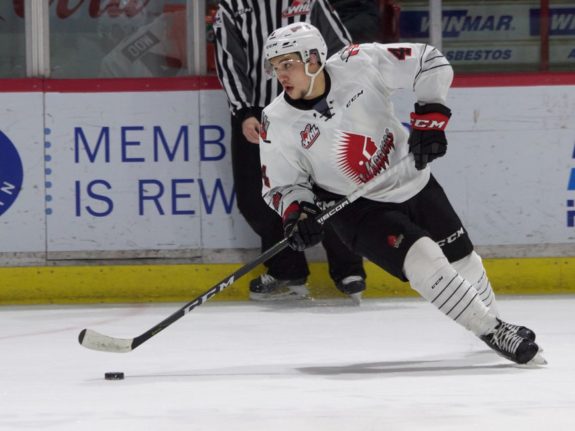
Only one Chinese native has been drafted in the league. Andong “Misha” Song was drafted with the 176th pick by the New York Islanders in 2015. Interestingly, it was former Islanders owner Charles Wong who started the seeds of an NHL hockey academy in China.
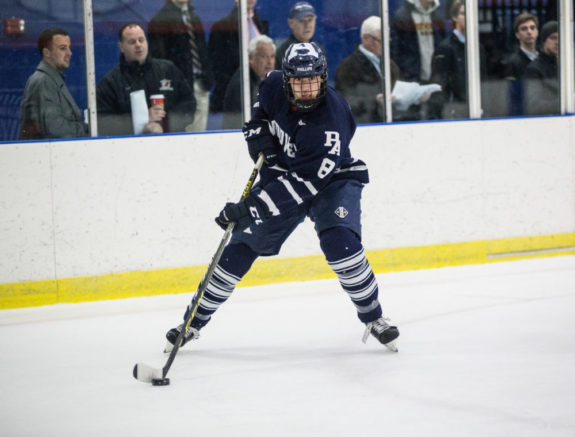
The NHL has a long, long, long (did I say long) way to go before it achieves the popularity it seeks in China. At this time, there couldn’t be a more perfect set of events aligning for the NHL to take its foothold. As Deputy Commissioner Daly said, the sky is the limit, but the 2019-20 season could be the start.